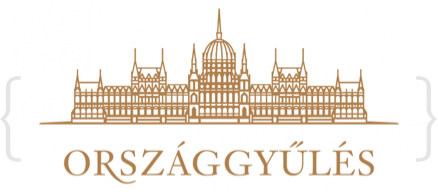Approximation of law
The process
The most important task of parliaments in the process of EU integration is the approximation of the national law with the EU acquis.
This very complex task has to be carried out continuously in the preparation for integration and not exclusively by the parliaments, but also in close cooperation with the governments and EU institutions. The legal basis for this lies in Article 70 of the SAA which provides for the general obligation that “Bosnia and Herzegovina shall endeavour to ensure that its existing laws and future legislation will be gradually made compatible with the Community acquis. Bosnia and Herzegovina shall ensure that existing and future legislation will be properly implemented and enforced.”
The key element of a successful process of the legal harmonisation is the coordination mechanism among the Executive authorities in BiH. In addition, the Programme of Integration should be drafted and adopted respecting the current constitutional set-up of the country. Further vital elements of this process are the creation and operation of an efficient cooperation mechanism between the Parliament and the Executive on one hand, and a clear cooperation mechanism among and inside the BiH Parliaments, on the other hand.
The tasks of the Parliament in legal harmonisation may differ at the different stages of EU integration, the workload gets more demanding as the country is granted the candidate status and, later on, when the accession negotiations start.
For a successful and coordinated legal harmonisation the contractual obligations between the European Union and the country that intends to accede to the EU need to clearly define the stages and phases of legal approximation. On the 1 June 2015 the Stabilisation and Association Agreement between the EU and BiH entered into force. As part of the European integration process the potential candidate country should adopt a kind of road map that summarizes who does what, when and how. This is the so-called Programme of Integration, which also contains an adequate legal harmonization plan. Such programmes need to be elaborated by the governmental authorities having the necessary competence and capacity to fulfil this task. Based on these programs the implementation needs to be monitored and this is the stage where the role of the parliaments, and in particular its working body dealing with European affairs is vital. The legal harmonisation process in the parliament needs to be integrated to the most possible extent into the normal legislative activities.
The programming of legal approximation process falls within the responsibilities of the governments. The priorities must be determined by a political decision of the governments on the basis of technical feasibility as well as financial and social impact assessment by competent legal and other professionals. The parliament needs to be involved in this process at early planning phase.
It is obvious that the transposition of EU legal norms before the accession practically takes place with the main initiative and execution roles assumed by the governments. However, the parliament has a crucial role in the whole process as legislator responsible for a large part of legal approximation activities and as the institution ensuring democratic legitimacy and political control. This political monitoring is mainly exercised on a daily basis through the European integration committee of each parliament.
Another crucial aspect of the legal approximation process is examining the conformity of the proposed legislation with that of the EU law, the so called compliance checking. This is a task carried out first and foremost by the governmental authorities which means that the draft bills submitted by the governments to the parliaments need to be accompanied by an explanatory report describing the scope of the legal initiative and the degree of compatibility of the draft law with the EU acquis. In addition, the compliance checking of the parliamentary amendments and legal opinions on the bills is one of the most important issues in all parliaments before accession.
Regarding the role of the BiH Parliaments, the SAA explicitly stipulates the special role of the PABiH in Article 12 and in Article 121. More details about the European Union - Bosnia and Herzegovina Stabilisation and Association Parliamentary Committee (SAPC) you may found under ‘the Stabilization and Association Parliamentary Committee’ heading.
1st EU-BiH SAPC meeting
European Parliament Delegation for relations with Bosnia and Herzegovina
In later phases of EU integration, after the submission of application for EU membership, and granting candidate country status the accession negotiations may be opened. The BiH Parliaments will face a substantial increase of workload because the transposition of EU norms into the BiH legal system will have to be carried to a great extent through the Legislatures. The chapters of the EU acquis (presently 35) form the basis of the accession negotiations for each candidate country. These chapters correspond to the different areas of the EU law for which reforms are needed in order to meet the accession conditions.
Conditions for membership
The SAA infographics by DEI
Current status of EU enlargement

Bosnia and Herzegovina

Bosnia and Herzegovina

Republika Srpska


 ABOUT TWINNING
ABOUT TWINNING


